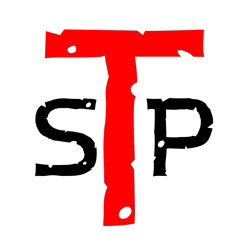
When it comes to race wheels, it can feel a bit overwhelming. Every cyclist wants the speed and sleek look that race wheels provide, but not everyone has the budget to match. Luckily, there are ways to score a good deal without breaking the bank. Here are some tips for finding race wheels that suit your needs.
1. Rent Wheels for Races
One of the easiest ways to get race wheels without spending a fortune is to rent them for race day. Many races offer wheel rentals, allowing you to enjoy the performance benefits of high-end wheels without the upfront cost. Check out this helpful video on wheel rentals for more information: Video Link.
2. Be Cautious with Second-Hand Wheels
Buying used wheels can be a gamble. While second-hand wheels are typically cheaper than new ones, there’s always the risk that they could be damaged or worn out. New wheels can be expensive, but they offer a level of reliability that used wheels may not.
3. Where to Buy Race Wheels
Here’s a good strategy for buying race wheels:
- Ebay: This platform is a great option because it provides buyer protection. If you end up with poor-quality wheels, you can work with Ebay to resolve the issue and get your money back.
- Facebook Classifieds: Shopping locally through Facebook can be a great option since you can inspect the wheels in person. It’s also easier to track down the seller if something goes wrong.
- Online Classifieds (like Slowtwitch): Websites like Slowtwitch have classifieds sections, but it’s important to research the seller. Look at their profiles on Facebook and other platforms to make sure they’re trustworthy.
- Bike Shops: Some bike shops sell used wheels that they’ve taken in on trade or that are no longer needed. It’s worth checking with local shops to see if they have any for sale.
4. Stick to Wheels That Are 5 Years Old or Newer
Wheels that are five years old or newer tend to offer a good balance of performance and longevity. Older wheels may be cheaper, but they might not perform as well or could have unseen wear and tear.
5. Budget for Around $1,000
Expect to pay about $1,000 for a set of quality race wheels. While this may seem like a lot, it’s generally what you’ll need to spend to get a good pair of carbon wheels that perform well and last.
6. Make Sure the Wheels Fit Your Bike
It’s important to get wheels that fit your bike correctly. Here’s how to ensure they will work:
7. Clincher vs. Tubular Wheels
When deciding between clincher and tubular wheels, consider the following:
- Tubular Wheels: These require glueing to the rim (usually done by a bike shop for around $100 per wheel). They are generally more durable, but a flat tire during a race means you’ll be stuck without a spare.
- Clincher Wheels: These are easier to repair and allow for faster tire changes in a race. You can change a flat tire yourself, which is a big advantage if you’re racing.
8. Make Sure the Wheels Match Your Bike’s Cassette
Your bike’s cassette is an important factor when buying race wheels. Make sure the wheels you choose are compatible with your bike’s cassette. For example, a bike with a 10-speed cassette might need an upgrade to 11-speed, which can sometimes be done by a bike shop.
9. Rim Brakes vs. Disc Brakes
Another key factor is whether your bike has rim brakes or disc brakes. Make sure to buy the correct wheels that are designed for your braking system.
10. Wheel Size
Most road bikes use 700c wheels, but smaller frames, such as those for shorter riders, may have 650c wheels. Be sure to check the size of your current wheels before buying new ones to avoid compatibility issues.
Conclusion: How to Start Your Search
When beginning your search for race wheels, it’s good to have a specific goal in mind. For example, a set of Zipp 808 Clincher Carbon Wheels, 700c, Rim Brake would be a solid choice for many cyclists looking for high-performance race wheels.
By following these tips, it’s possible to find high-quality race wheels that fit both your bike and your budget. Happy hunting!

